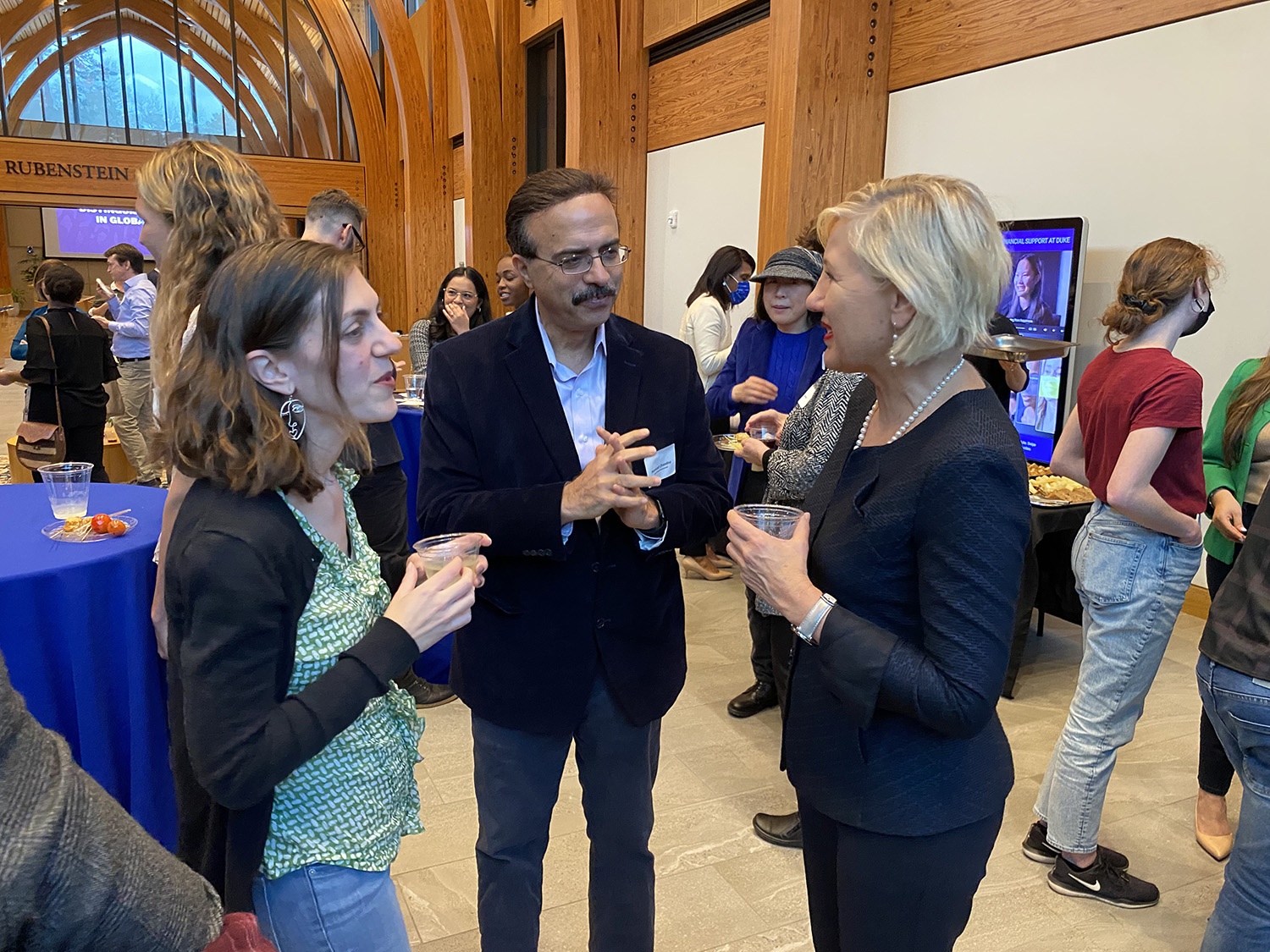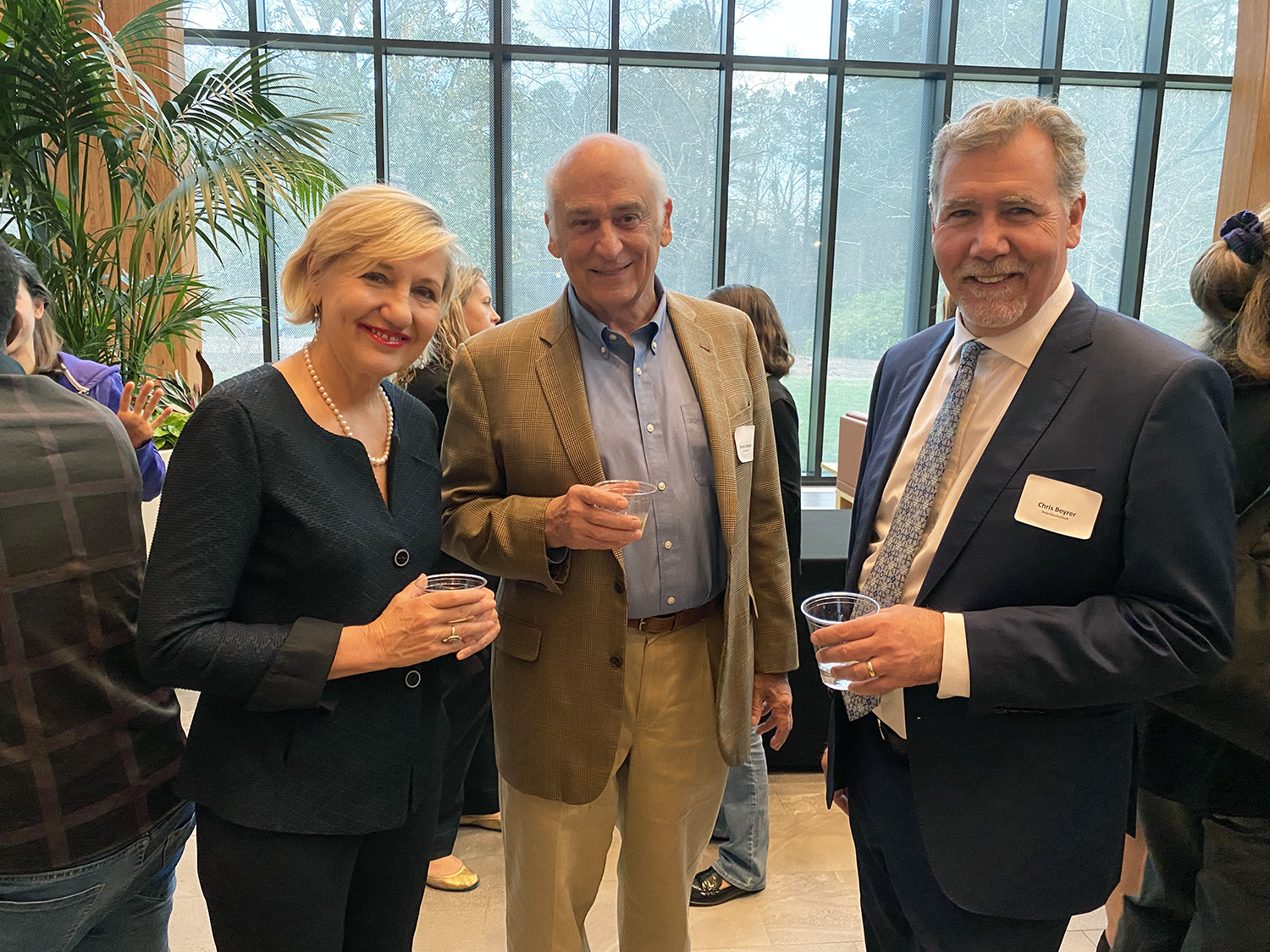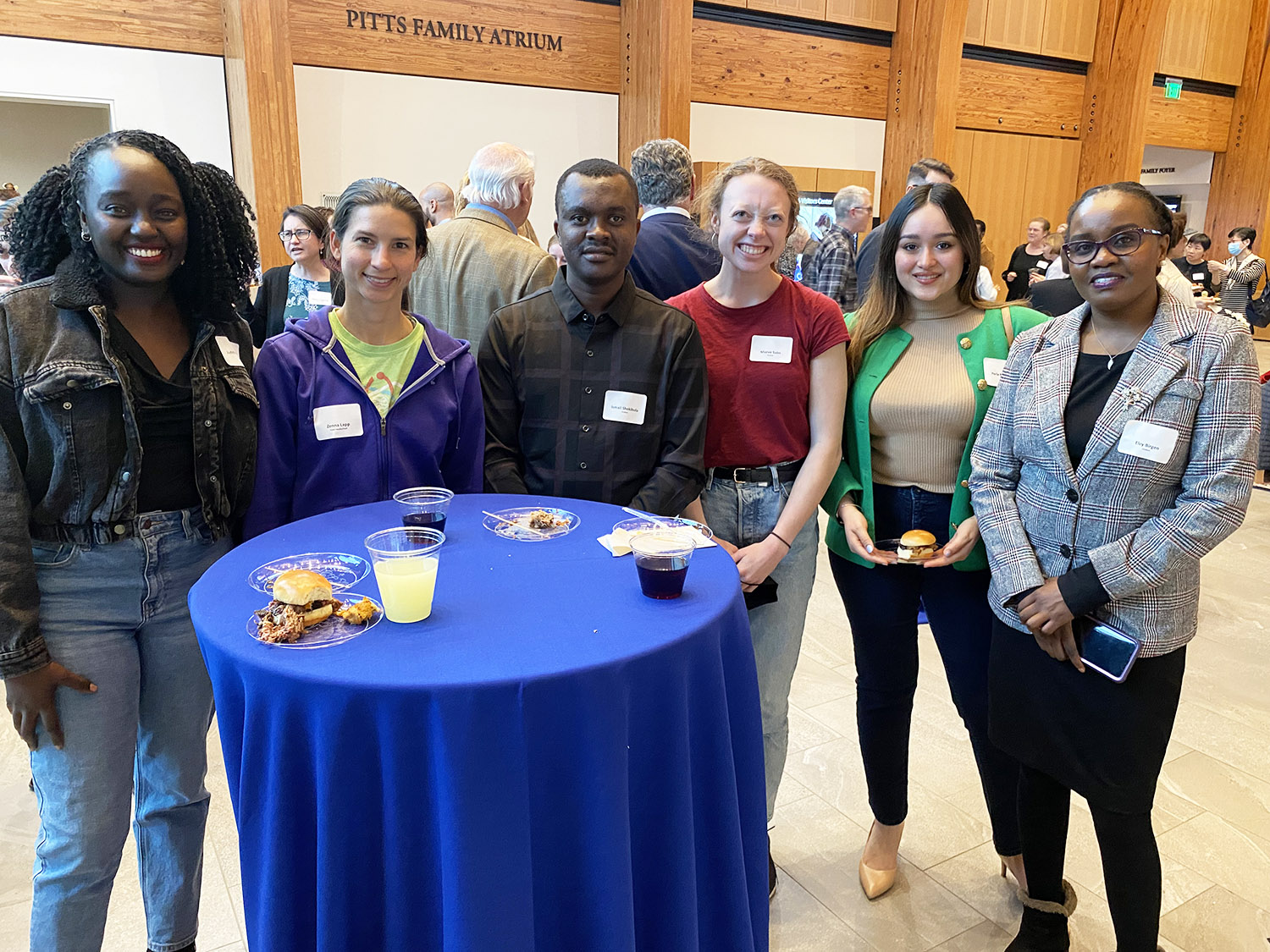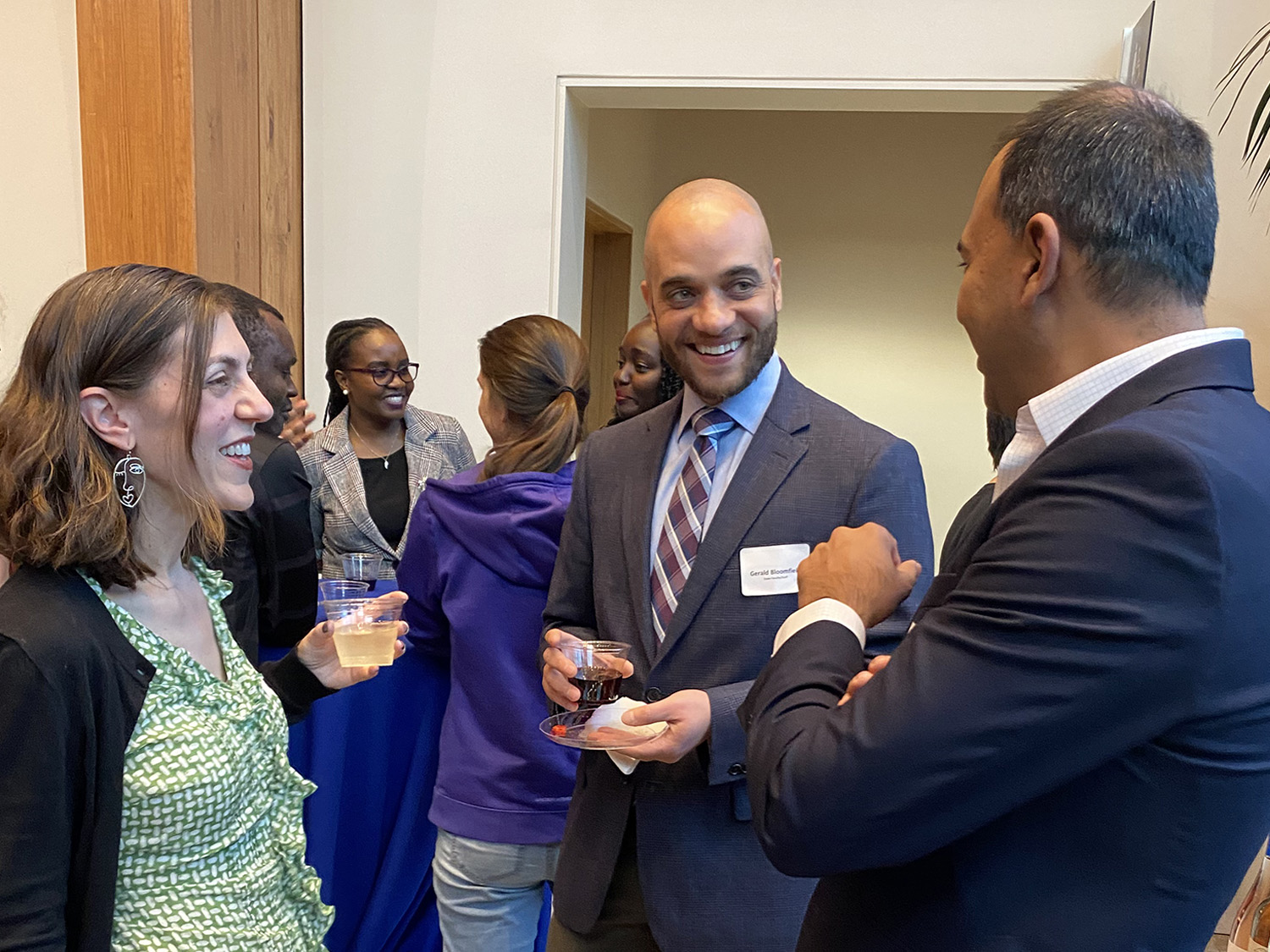Dr. Glenda Gray knows how history can repeat itself. A pediatrician and the first female president of the South African Medical Research Council, she lived and worked in South Africa during the crippling HIV/AIDS epidemic and the country’s more recent battles with COVID-19.
Although the viruses caused different medical issues, they affected the country in similar ways, Gray said during the Duke Global Health Institute’s 2023 Victor J. Dzau Distinguished Lecture in Global Health, held Feb. 15 in Duke’s Karsh Alumni and Visitors Center. She noted that in both health crises, people living in rural areas faced some of the hardest health challenges. Women were disproportionately affected, and remnants of the country’s apartheid regime widened racial and socioeconomic disparities in care.
“COVID-19 really emphasized what we already knew about inequalities and poverty in South Africa and how it drives health outcomes,” she told the audience. “Despite democracy, the failure to address the legacies of the past will continue to plague us when it comes to responding to diseases that place poor people at risk.”
Full recording: Dr. Gleda Gray gives the...
Gray’s work over the past three decades has helped the most vulnerable across South Africa. In the 1990s, when one in four pregnant women in South Africa were testing positive for HIV, she began working on preventing transmission of the virus from mother to child. She founded the Perinatal HIV Research Unit at Chris Hani Baragwanath Hospital in Soweto and has led a longstanding research effort to develop an HIV vaccine.
But medical interventions were hampered by a strong wave of AIDS denialism, Gray said. She recounted how Thabo Mbeki, South Africa’s president from 1999 to 2008, claimed the virus didn’t cause AIDS and that illnesses were due to malnutrition. A 2009 study from Harvard University estimated more than 300,000 people with AIDS died prematurely during Mbeki’s administration because they did not receive ant antiretrovirals (ARVs).
“What we see in south Africa is that life expectancy is inexplicably linked to disease, politics, economy and human rights,” Gray said. “Apartheid has created a fertile ground for pandemics and its effects in our society
Nearly 30 years later, Gray was again in the middle of another health crisis. She chaired South Africa’s Research Committee on COVID-19, helping guide the government and Minister of Health’s decisions to control the virus. But while South Africa’s strict lockdowns in the early days of the pandemic prevented health facilities from being overwhelmed, Gray pointed out they also made other issues such as childhood malnutrition and unemployment worse. More women lost their jobs during lockdowns, she noted, and yet women received less government aid.
“The pandemic exacerbated inequalities and human rights,” she said. “Again, we saw that the tale between public health and the economy lead to deeply racialized, gender and class-based consequences in our country. We see the geospatial and racial issues in COVID-19 that we saw in HIV.”
Once COVID-19 vaccines were developed, South Africa, like many low- and middle-income nations, faced challenges in securing vaccine supplies, which were hoarded by wealthier countries. Gray said the experience show that South Africa and other African countries need to become more self-reliant by developing and manufacturing vaccines within their borders.
“We can’t depend on the Global North for trade and so developing local manufacturing is imperative,” she said. “We can’t be dormant for years and only respond when there’s a pandemic. We have to get into the production of vaccines and continue to do that.”
The lesson from both pandemics, Gray said, is that South Africa needs “a renaissance” to address broad issues of poverty, gender and racial inequalities, and human rights. Only then, she said, can health outcomes improve in parallel.
“We need to address lots of issues, but there has to be a huge commitment to a radical transformation of the country and by doing that, there’s a trickle-down effect. Without jobs and education, we’ll find ourselves in a spiral that continues.”
The Victor J. Dzau Distinguished Lecture in Global Health brings visionary leaders to Duke to discuss cross-cutting issues confronting health, equity and human rights around the world. This annual lecture is supported by a gift from former Duke Health chancellor Victor J. Dzau, and his wife, Ruth Cooper-Dzau, as well as funds from the Bill & Melinda Gates Foundation Global Health Matching Grant.
Alumni Reception
DGHI hosted a reception for alumni and friends of the institute prior to Glenda Gray's talk in the Karsh Alumni and Visitors Center. A few photos from the reception are below.









